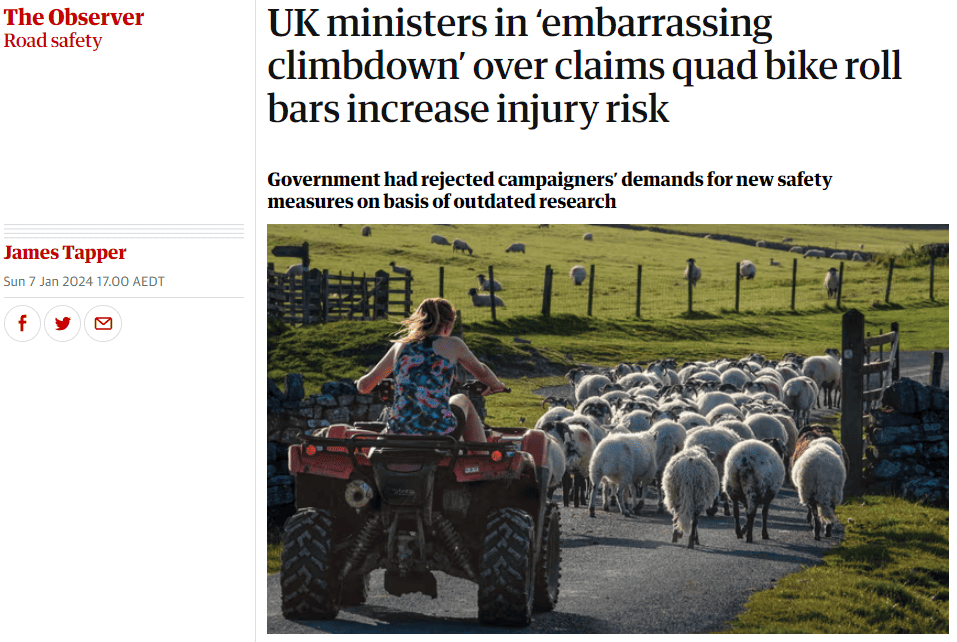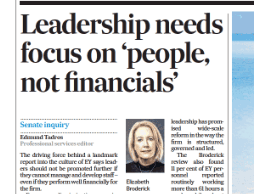It has been several months since the 23rd World Congress for Health and Safety was held in Sydney, pictured above. A major benefit of attending occupational health and safety (OHS) conferences is meeting people, old and new. I was honoured to meet Rene LeBlanc, an occupational hygienist from Canada. We had dinner on a very rainy and stormy Sydney night, and Rene agreed to an interview. Below is an edited version of part of that conversation (it was a long dinner). Rene was wide-ranging on his OHS topics.
Category: consultation
What makes Victoria think it is so special?
The Victorian government has released the final report of the Legislative Council Economy and Infrastructure Committee’s inquiry into the Workplace Injury Rehabilitation and Compensation Amendment (WorkCover Scheme Modernisation) Bill. Many readers will already be asleep after that sentence. Forgive me, it is accurate, but is the report of any use? It certainly progresses the debate on psychosocial regulations.
Quad Bike safety? It’s the UK’s turn
A recent article in The Observer illustrates just how far behind Australia the United Kingdom is on requiring the installation of crush protection devices on quad bikes. It is also surprising that the UK’s Health and Safety Executive (HSE) is not just relying on independent Australian research into quad bike rollovers. The vehicles are the same makes and models, the terrain is similar, and the risk is the same …??
OHS seems to be no more than a “nice-to-have” to Australian politicians
Several events or non-events at the recent 23rd World Congress on Safety and Health at Work illustrated the political attitude to occupational health and safety in Australia, especially the lack of presence of national figures on official duties.
Leadership and Culture confusion is self-inflicted
Every occupational health and safety (OHS) conference over the last twenty years seems to have revolved around the twin concepts of culture and leadership. The fascination with these concepts deserves analysis as they are confusing, and sometimes conflicting, and this is unhelpful for those in the lower or middle order of the management structures who are trying to affect change.
Cultural and operational shortcomings in white-collar work
Long working hours and the billable hours structure received some attention in the prominent business newspaper. the Australian Financial Review, on November 11,2023. Unsurprisingly the article, by Edmund Tadros, about former Sex Discrimination Commissioner, Elizabeth Broderick has garnered attention in the business social media. The article reinforces the unsafe nature of the dominant management practices in white-collar workplaces.
Get rid of dinosaur thinking on workplace mental health
Victoria’s coronial services has been found guilty of breaching its occupational health and safety (OHS) obligations after one of its employees died by suicide, identifying work issues as a major factor in her death. WorkSafe Victoria has released the best source of information on this case. Most of the mainstream media is relying on a newswire report,which is based on WorkSafe’s information.
Significantly none of the prevention strategies identified by WorkSafe are included in the media reports even though this is perhaps the most vital information for preventing recurrences.
This article looks at the advice offered by WorkSafe Victoria in its media release on what actions it believes could prevent the occupational factors that resulted in this suicide from emerging, or not being addressed, in your workplaces.







